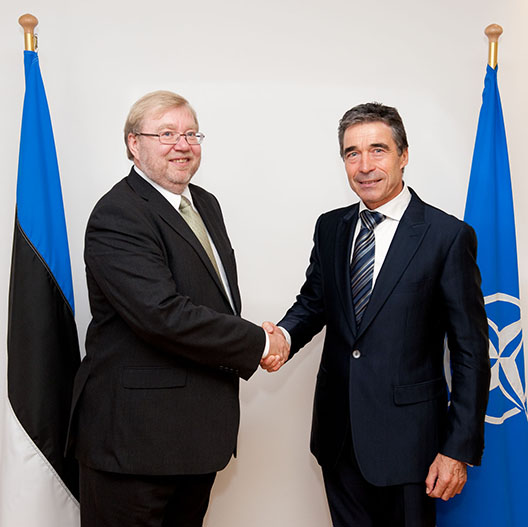 Within days, five years will have passed from the Russian-Georgian war. Much is written about it, a movie has been made. Still, many a question remains unanswered. For instance: opinions differ when exactly the war started and ended; who started it; who was to blame. Herewith, leaving political aspects aside, I will focus on ten lessons, hopefully useful to defend Estonia. 1. Better the bitter truth than fancy illusions. While Russia had been preparing for the war, for years, knowing precisely what she wanted, Georgia did not. Georgia let herself be drawn into the war at a time most unfavourable. Her best brigade serving in Iraq, another on its way to go replace them. A part of the army was being re-armed and the equipment in maintenance; numerous officers on vacation. The Minister of Defence was on holiday, in Italy. . . .
Within days, five years will have passed from the Russian-Georgian war. Much is written about it, a movie has been made. Still, many a question remains unanswered. For instance: opinions differ when exactly the war started and ended; who started it; who was to blame. Herewith, leaving political aspects aside, I will focus on ten lessons, hopefully useful to defend Estonia. 1. Better the bitter truth than fancy illusions. While Russia had been preparing for the war, for years, knowing precisely what she wanted, Georgia did not. Georgia let herself be drawn into the war at a time most unfavourable. Her best brigade serving in Iraq, another on its way to go replace them. A part of the army was being re-armed and the equipment in maintenance; numerous officers on vacation. The Minister of Defence was on holiday, in Italy. . . .
3. Intelligence equals sight. In the Russian-Georgian war, both sides were rather presumptuous regarding intelligence. Russian intelligence lacked precise information on Georgia; and they severely underestimated Georgia’s ability to resist.
Georgian intelligence did have lots of data on Russia; even so, they did not have decent analysis, putting the data together. Also, they overly trusted in the technical NATO surveillance, which sadly missed the amassment of Russian troops behind the border, whence these were able to move swiftly into South-Ossetia. . . .
5. Today’s wars are total by nature. As revealed by Russian-Georgian war, in contemporary warfare conventional means are entwined with the new methods such as cyber and information wars. As the tanks set forth, the cyber attacks commenced. To switch off Georgia’s information systems, both cyber attacks and bombardment from planes were used. Estonia has realised the need for broad based defence; however, the corresponding laws are still waiting to be passed.
6. Decent medical service and personal means of protection save lives. In the Russian-Georgian war, over 1,200 Georgian warriors were knocked out of action, two thirds of these being wounded. Of those, many could have died; even so, they were spared thanks to protective vests and decent helmets. The wounded were swiftly gotten off the battle fields, medical service functioned well.
Only three per cent of soldiers died of their wounds. In Estonia, much attention has been paid to development of medical service; even so, we are only starting down that road. . . .
9. Half-baked solutions will not work. Instead of a «paper army» and parade units, integrated whole units need to be created. Let such be less in number, rather; but let them be capable. What good were the Georgian brigades, when the men lacked decent communications, others having no transportation? The ability of such units to participate in battle is zero. Slowly and painfully, Estonia is beginning to get this; the new state defence development plan considering these issues.
10. Hope in NATO, but keep gunpowder dry. International relations are vital; even so, all told, we can only count on ourselves. The Georgian hopes for solid help by somebody were crushed. Had they not fought themselves, keeping the Russian advance back at least for some few days – in spite of all mistakes made and the situation being unfavourable – the Georgian state would have been wiped off the map, and a new government installed. Mistakes and all, it were only the Georgians themselves who saved the Georgian state.
For Estonia, the experience means we will have to be well integrated and rehearsed to interact with NATO, while diligently seeing to our independent defence capabilities. At that, it is vital to have a strong will to defend ourselves i.e. the desire to stand up and fight – if needed. The stronger the will, the safer the state.
Mart Laar is former Prime Minister of Estonia.
Image: Estonia "will have to be well integrated and rehearsed to interact with NATO" (photo: NATO)
